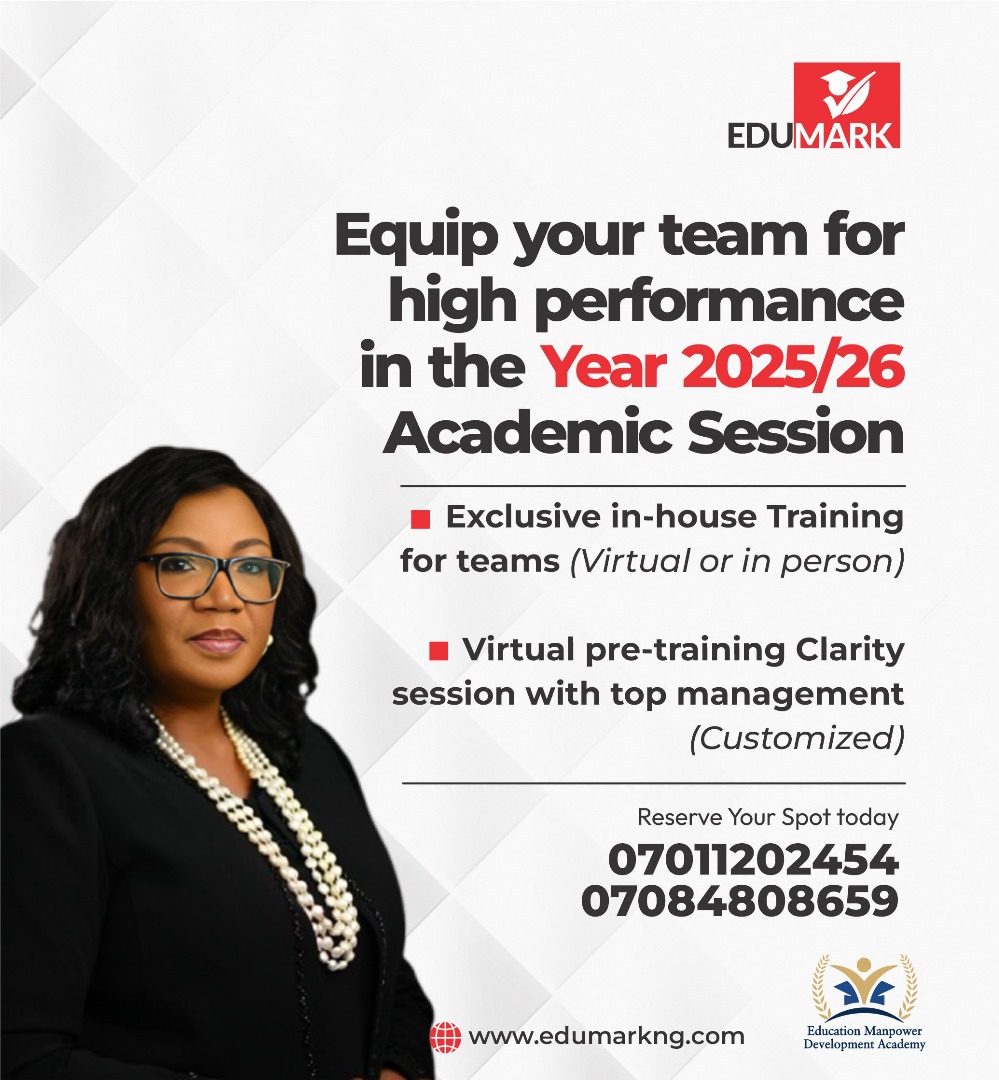
African women have been boxed into small traders, side hustlers, support roles – Ibukun Awosika,
By Olayinka Ajayi
Mrs. Ibukun Awosika, the first female Chairman of First Bank, is the Convener of African Marketplace Dubai. In this interview, Awosika discusses her deep passion for entrepreneurship and how Africa can establish its place in the global economy, among other topics. Excerpts:
Looking back, what core values shaped the woman you are today?
My life and leadership have been anchored on a few non-negotiable values. These are principles that were forged in me over the years through experience, conviction, and faith. They stem from the principles I was raised with, the leanings and convictions I’ve embraced throughout my journey, and the consistent guidance of my faith and belief system. These values have shaped the woman I’ve become, every decision I’ve made, every business I’ve built, and every life I’ve touched.
They are integrity, purpose and value creation. I’ve always believed that it is possible to succeed without cutting corners. Cutting corners was never an option, and that conviction has sustained me across decades of leadership. I’ve built my life and businesses on doing what is right, not what is easy.
Also, I didn’t go into business primarily to make profit. I went in to solve problems and create lasting value. Purpose gives meaning to the work and keeps you grounded through every season.
Knowing who I am has helped me lead authentically and serve effectively. I ’ve always valued people. You don’t succeed alone. Whether mentoring, building teams, or leading organizations, I believe in empowering others and creating space for everyone to thrive.
How do you balance your roles as a wife, mother, business leader and mentor?
My faith informs every decision: marriage, motherhood, leadership. I delegate and empower others; money and people working for me so I can attend to what truly matters. I bring my true self into every room: family, business, mentoring. Honestly, I see my roles not as burdens to manage, but as expressions of purpose. That’s how I show up fully as a wife, mother, leader, and mentor.
But what role has mentorship played in your journey?
Mentorship has been one of the most defining and sacred elements of my journey. I often say that we are not meant to walk alone and I have been privileged to walk under the wisdom and covering of people who did not only teach me, but showed me. Some were formal mentors who sat with me through difficult decisions, others were silent examples whose lives inspired me to rise. Their influence helped me avoid certain pitfalls and provided a sounding board that strengthened my convictions.
This is why I invest deeply in others. When mentees reach out, I make time: I listen, pray and encourage them. I invite many into networks and cohorts. The 360 Executive series and TIWLC are some of such extended mentorship ecosystems. Through them, women learn to work together, give and receive support from each other. That, to me, is mentoring in action. When done right, mentorship will not only change a mentee’s life but also expand your own purpose and legacy.
What is your approach to risk-taking in business?
Calculated obedience. That’s how I’d describe it. I don’t take risks for the sake of being bold but I weigh them, I pray about them, I seek counsel, and I move when I believe it’s time.
Starting The Chair Centre was a risk. Leading First Bank as its first female Chairperson was a leap. But every step has been driven by purpose, not ego. I believe when you take the right risk with the right heart, backed by the right principles, you position yourself for transformational outcomes.
What drives your passion for entrepreneurship and empowering others?
Entrepreneurship is more than a means of livelihood, it is a vehicle of liberation. My entrepreneurial journey, from building The Chair Centre to sitting on a number of esteemed corporate boards, has taught me that true empowerment happens when people believe that their dreams are valid and that they are equipped to pursue them. That’s why I’m passionate about mentorship, and about policy-level interventions that remove barriers. I don’t want to be successful alone. I want to multiply success in others. When I see someone I once mentored leading their own team or breaking barriers in their industry, that’s when I know the work is truly worth it.
What inspired the African Marketplace initiative?
I wanted to create a platform that aggregates a well curated selection of such African businesses with export-ready products of international standards, fostering economic transformation, accelerating intra-African trade and driving job creation for our continent’s teeming youth population. However, beyond commerce, one key objective of African Marketplace is to change the perception of African excellence and redefine the narrative of the ‘Africa story’ through our culturally rich product, innovation and craftmanship. Dubai, being a global hub for trade, culture, and innovation, offered the ideal backdrop for this vision. But more than the location, it’s the heart behind the Marketplace that makes it different. It’s a call to action, a declaration that we are not waiting to be invited to global conversations. We’re building our own tables, and we’re inviting the world to come see who we truly are.
How does African Marketplace Dubai 2025 aim to change global perceptions of African businesses and showcase African excellence?
For far too long, the global narrative around Africa has been one-dimensional, defined by need, rather than by capacity; Aid rather than trade. African Marketplace Dubai 2025 is a deliberate response to that. African Marketplace is a visual declaration that we are creators of value, not just consumers of aid. It’s about giving our entrepreneurs a global voice and market presence. When buyers, investors, and stakeholders see the quality and innovation on display, they will begin to engage with us on new terms of dignity, excellence, and mutual value. That’s the shift we are catalyzing.
Our businesses are not defined by charity or survival, they are defined by creativity, resilience, and a relentless pursuit of excellence. Through this platform, we are leading with quality. We are placing premium, export-ready products in front of discerning international buyers, not with apology, but with pride.
From high-end fashion to cutting-edge tech, from agricultural innovation to cultural artistry, we are telling the full story of who we are and what we bring. The goal is not to impress, but to correct. To shift the lens from aid to trade, from scarcity to abundance, from raw potential to refined performance. This is African excellence delivered without compromise, without dilution and without the need for permission.
Have you formed any key partnerships with governments, trade agencies, or logistics companies in Africa and the Caribbean states for support of this initiative?
Yes, we are currently in conversations with a number of strategic partners, including government bodies, trade agencies and logistics companies. While these conversations are still ongoing, the feedback and interest thus far, have been very positive. We’re optimistic these partnerships will significantly contribute to the overall success of this initiative.
How do you envision African Marketplace contributing to a more prosperous future for African and Caribbean economies and diaspora communities?
This platform brings us together not just to trade goods, but to trade wisdom, stories, strategy, and solidarity. Inclusion, for us, is not ticking boxes, it’s creating a new model of prosperity that centers our people and empowers them to lead in the global economy.
I see African Marketplace as a seed that will grow into a continent-wide mindset shift. When our entrepreneurs succeed globally, they hire locally. When diaspora communities see themselves reflected in global trade spaces, they invest more intentionally. When African and Caribbean businesses collaborate, we move from isolated progress to collective impact. This is how we build a future where opportunity isn’t limited to geography but is extended by vision, connection, and intentional platforms like AMP.
How does this project tie into your broader vision for African women and business?
At the core of everything I do whether in business, leadership, or advocacy is a deep conviction that women are powerful agents of transformation. I’ve seen it time and again: when a woman rises, she doesn’t rise alone, she brings her family, her community and often an entire ecosystem along with her. My broader vision has always been about unlocking that potential, creating structures where women are not just participating, but leading with confidence and competence. For too long, African women have been boxed into small narratives, traders, side hustlers, support roles. But the truth is, they are visionaries, builders, and innovators, capable of thriving at the highest levels of global enterprise.
African Marketplace was designed with intentional inclusivity at its heart. This platform showcases products and elevates the people behind them. We’ve made a deliberate effort to ensure women-led businesses are not only present but positioned for visibility, connection, and growth. I want African women to see themselves as rightful players in global trade, decision-makers, exporters, job creators. The Marketplace gives them a seat at the table, where their ideas, businesses and brilliance can be seen, heard, and invested in, on a global stage.
How would the platform ensure the authentic representation and inclusion of African and Caribbean products?
Authenticity is the foundation of the entire African Marketplace initiative. We are deeply intentional about what we curate and how we present it. This is not about putting African and Caribbean products on display for the sake of visibility; it’s about showcasing the full richness, depth, and excellence of our cultures in a way that honors their origins. From fashion to food, from wellness to technology, every product that makes it into the Marketplace is evaluated, well vetted for market readiness, cultural integrity and global competitiveness. We are committed to ensuring that what we put forward is premium in quality, dignified in presentation, and reflective of the brilliance that exists across our continent.
To do this well, we are collaborating with cultural custodians, industry experts, and local partners who understand the nuance and history behind what we’re showcasing. We’re not interested in watered-down representations—we’re building a platform that allows the world to engage with our products as they are: innovative, rooted, and world-class. Whether it’s the weave of indigenous loom fabric, the ingredients in a spice blend, or the design of a tech solution, we are making sure that everything reflects the true spirit of its origin. This approach ensures that the African and Caribbean narrative is not lost in translation but celebrated in its most authentic and compelling form.
How many businesses and entrepreneurs are you hoping to connect or transform through the platform?
We are targeting over 200 export-ready SME brands.
What is your long-term vision for it, and how do you plan to expand its global reach?
This inaugural edition in November, will lay a foundation for a second edition November 2026 as proof of concept paving the way for our long-term vision of a permanent African Marketplace in Dubai where authentic and culturally rich African and Caribbean products will be available all year round. Additionally, we will continue to host these exhibitions annually to attract new and innovative brands. The ultimate goal is sustainability, where African and Caribbean businesses thrive consistently in global markets.
What kind of impact do you expect this platform to have on the viability of export-ready African and Caribbean businesses?
Visibility is the first step, when the world sees you, it begins to value you. But we are going beyond awareness to valuation. Through strategic buyer connections, investment matchmaking, and business development support, we are equipping businesses not just to be seen, but to be scaled. Viability, in this sense, means long-term competitiveness—and that is our goal.
What unique value would it offer that will distinguish it from other international trade platforms?
It is more than a trade fair it’s a high-impact gateway to global business. It’s a celebration of culture, commerce, creativity, and connection in a way that reflects the richness of our continent and the Caribbean. We are designing an experience that is immersive, educational, and transformative. It will include B2B matchmaking, storytelling zones, innovation showcases, live demos and strategic networking that fosters real deals and deep dialogue.
What advice would you give to young African women trying to find their voice in a noisy world?
Be true to yourself and guard your identity. Know who you are in God and build from there. The world will offer many scripts, but your power lies in authenticity. Don’t wait for permission—equip yourself, find your tribe, and rise. Your voice matters, and when you use it with wisdom, it changes everything.
What would you say is your biggest legacy in corporate Nigeria so far?
If I’m remembered for anything, I hope it is for being a door-opener, for showing that excellence, character, and faith are not mutually exclusive in business. Whether it was leading as the first female Chairperson of First Bank or championing inclusion in boardrooms, I hope my legacy is that I made space for others. Legacy, to me, is not in monuments—it’s in lives changed. If generations after me can walk taller, dream bigger and believe deeper because of something I did or stood for, then I’ve done my part. My end game in life is to die empty.
The post African women have been boxed into small traders, side hustlers, support roles – Ibukun Awosika appeared first on Vanguard News.
,
Mrs. Ibukun Awosika, the first female Chairman of First Bank, is the Convener of African Marketplace Dubai. In this interview, Awosika discusses her deep passion for entrepreneurship and how Africa can establish its place in the global economy, among other topics.
The post African women have been boxed into small traders, side hustlers, support roles – Ibukun Awosika appeared first on Vanguard News.
, , Idowu Bankole, {authorlink},, , Vanguard News, August 10, 2025, 2:31 am










